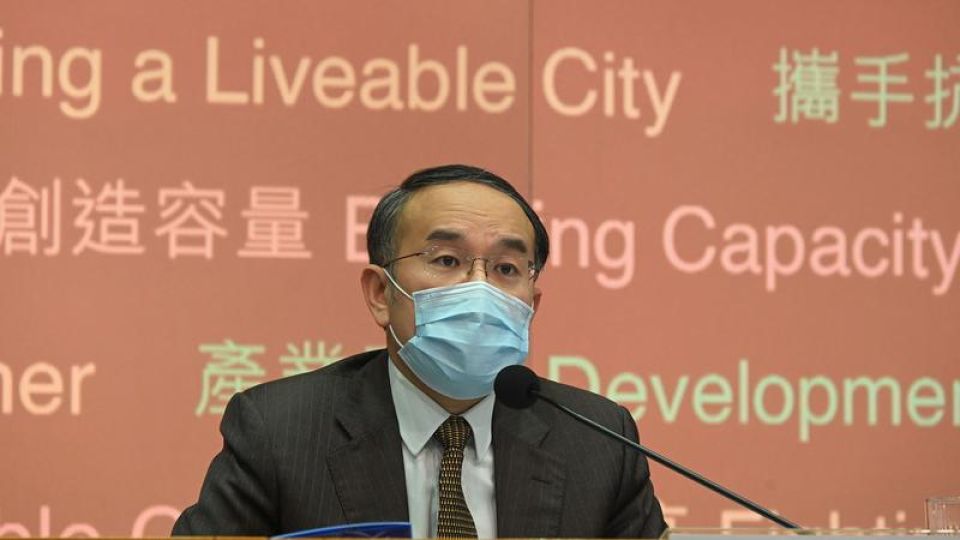July 14, 2022
HONG KONG – The Hong Kong Special Administrative Region government has no plans to increase taxes despite heavy public spending to fight the pandemic and speed up the territory’s economic recovery, Secretary for Financial Services and the Treasury Christopher Hui Ching-yu said Wednesday.
Answering a query at the Legislative Council, Hui said the HKSAR’s simple and low tax regime is one of the cornerstones of its success in maintaining its competitiveness and is “of utmost importance” in bolstering the city’s competitive edge.
Government spending on boosting public health shot up from HK$71.1 billion (US$9.06 billion) to HK$162.8 billion, from HK$16.4 billion to HK$106.7 billion on the economy, and from HK$70.3 billion to HK$120 billion on social welfare
“In view of the economic environment and impacts of the epidemic, businesses and individuals are generally under considerable financial pressure. The government considers that this is still not the appropriate time to revise the rates of profits tax,” he said.
Government spending to boost public health, the economy and social welfare increased when compared from 2017-2018 to the 2022-2023 estimates.
Public spending on health shot up from HK$71.1 billion (US$9.06 billion) to HK$162.8 billion, from HK$16.4 billion to HK$106.7 billion on the economy, and from HK$70.3 billion to HK$120 billion on social welfare.
Hui said the rise in spending on improving public health was due to the efforts to tackle the COVID-19 pandemic while the introduction of the consumption voucher program was behind the dramatic increase in spending to boost the economy.
Hui said government will continue to explore different ways to broaden revenue sources and noted that it had already raised the rate of Stamp Duty on Stock Transfers in August 2021, which will increase revenue by around HK$12 billion per year.
In the medium term, the government will introduce a progressive rating system for domestic properties in 2024-25 to reflect the “affordable users pay” principle, Hui said.
“Overall, the government’s current fiscal position is sound and healthy. In the face of the complex and volatile international political and economic environments, the government will continue to exercise prudence in managing public finance and retain its financial strength to cope with unknown circumstances and needs,” he added.


